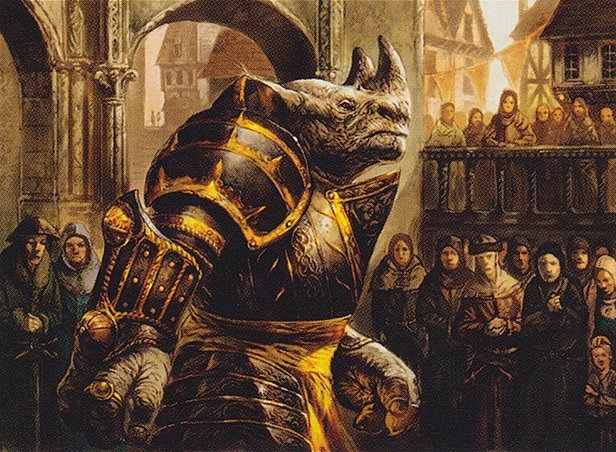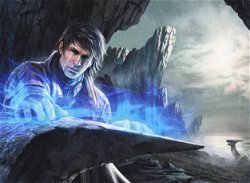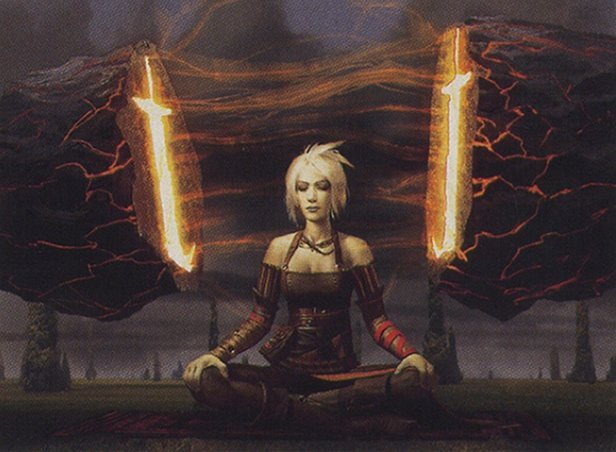An important tip is to don't limit your deck sideboard to just fifteen cards.
Obviously if you are going to play a championship, be it IRL or MTGO, and your deck is finished, this tip is not worth much, as it is a proposal that needs to be developed at least a few days before actually using the deck. We can say that it will be a deck for training, with or without changes.
My tip is to have sideboard cards that work against a number of decks that fifteen cards do not support, that is, do not limit yourself to fifteen cards, and you need to know exactly which decks each card works against, and only then, when playing , select the cards that you believe will benefit more in relation to the others in front of the decks you speculate to face on a given event.
In the case of Challenges, most players repeat themselves every week, of course some are always different, but if you have played these Challenges for some time, you will recognize a certain pattern of opponents, so it may be that the sideboard you choose follows a closer to the ordinary strategy.
In independent championships your sideboard can be a little different, as decks that are not on the top of the metagame are used.
In IRL championships, especially in the store you go to, you may already know some players, so you can know the pattern of decks that each one plays, and select a sideboard accordingly. If we talk about bigger tournaments, I insist that you train with a wider sideboard, and reduce to fifteen cards as close as possible to the tournament, as soon as you notice a stabilization of the metagame.
Therefore, here is the list and sideboard tech that I will talk about:
Note that the cards meet the most varied decks of the current metagame, but that can be applied to others that do not appear at the top tiers.
Sideboard Tech

Great card against artifacts, mainly to destroy land artifacts, like Ancient Den, but it can be used against other important pieces, like Bonder's Ornament, Relic of Progenitus, and its activation cost to destroy these cards is not a problem for a deck like Tron.
He had been forgotten for just over a year, but he has widely been used again due to his letality against Affinity.

This creature is not very usual on the sideboard for Tron, but if your local meta has many Auras and many Heroics, it may be a good alternative to avoid headaches. It will pull all the opponents' auras towards you.

Until recently, some decks used up to 4 copies on the main deck, now Tron has focused more on preventing damage. Although, against aggressive decks, their presence is still indispensable.

He passed some tests, mainly against Affinity, because sacrificing the artifacts for Atog with Fangren on the field may not be a good idea, so the opponent's gameplan is delayed until he casts 2 Galvanic Blast, which is not that likely.

One of the best high cost cards for Pauper. In addition to the high attack power, Annihilation 2 is an absurd punishment to the opponent. Enter against decks that tend to try to control the game so we can end the game more quickly, against Midrange too, as many of the cards generate a lot of value when they enter or even on the field, which can make life difficult for Tron.

Perhaps the best card to exile the graveyard, as you can cast it at the beginning of the game for it to go exiling the graveyard little by little, or to arrive and send everything away at once. Tron, Reanimator among others are decks where you want to use it.

The absolute card in the main deck of the blue decks known as Ux, but in Tron it plays the role of trying to deal with these oppressive Ux, with the objective of matching the field and obtaining the crown for yourself.
Tron needs to remove the Monarch from Ux, but it is not a matter of benefiting from the crown, since the deck already draws much more cards than practically the entire metagame, the ideal is to remove the Monarch from the opponent, to decrease his Card Advantage, because this takes Ux to a level that can surpass Tron by filling the hand with better resourcres.

It will always go against red decks, especially Burn and will also work against Valakut Invoker from the Walls deck.

with a similar function to the previous card, but this one targets the blue cards, so can enter against the Ux, in the Mirror match. We already use one on the main deck, preventing surprises against Tron, and more recently the Fall From Favor decks.

Some even play this card on the main deck. Usually Dispels counters a counterspell, meaning that it can guarantee that key pieces will hit the battlefield.

Storm mechanic card. Copies the spell effect the amount of spells previously cast in the same turn. Excellent against aggressive decks and Burn decks, you will gain plenty of life points, so that it will be very difficult for your opponent to return.

Destroys artifacts. Widely used in recent years by various decks, and has a lot of advantage over other artifact removals because of the Flashback.

Another very good artifact removal. It and Ancient Grudge are the two best in the format, at least inside the red color, however, as well as the previous one that has a differential, which is the Flashback, this one has an additional one, which is the versatility to choose to give three damage to any creature.
This makes it much better than just destroying artifact. Each player chooses one, but the metagame is actually the one who decides, it depends a lot on the decks that are faced, or that are expected to face. Perhaps against a Boros Monarch, Abrade is better, for the possibility of removing his precious artifacts, or a Kor Skyfisher for example. Against Affinity these three damage to some creature is not so useful, with Flashback being more important.

This is the best black removal of the shape. Destroy any creature in Pauper, at least the relevant ones. Its use has been more restricted to MBC and UBs, but some lists still use it, to remove Dinrova in the Mirror Match, or even, against the dreaded Walls deck

The biggest and best "hate" of Auras in the format.. There are others, but not for two manas.
It will destroy all Auras on the battlefield, either yours or the opponent's and is devastating against Heroic and Bogles, and Mystical Teachings can still tutor it from the deck.

Some lists, like other cards on that sideboard, use a copy on the main deck. But due to the current metagame, it may not be that essential.
It's pretty good against decks that will be concerned with countering or removing creatures that generates plenty of value, and With Reaping the Graves you can return many of these creatures to your hand at a better time of the game, usually at the beginning of the opponent's end step, so that on your turn, you can cast these creature spells again, with greater security .
Sideboard Guide
Burn
This is certainly not a good match for Tron, at least in game one.
Tron needs to be quick to find ways to generate colored mana, make the deck spin until it has Weather the Storm in hand, to perform, perhaps, a kind of combo, using one or two spells that the opponent has cast, and also casting spells to increase the lifegain. At least four spells before, because gaining fifteen life is pretty hard for Burn to surpass.
In game two the story changes a little bit, because our sideboard additions are better than the opponent's additions.
Key card: Weather the Storm
Initial Advantage: Burn
Side In:

Side Out:

Stompy
Stompy is a fast deck, but it is very fragile against Tron's locks.
But you can't relax against that deck, quite the contrary, it wins in the blink of an eye.
When you're going to take 5 damage, it goes up almost immediately to 9 or 10.
So be careful. It is a strong and dangerous deck. One of the fastest in the format. Have in hand either Stonehorn Dignitary or Moment's Peace, because without them it will be impossible to win, Fiery Cannonade is a bomb against Stompy.
Key card: Moment's Peace
Initial Advantage: Tron
Side In:

Side Out:

Mono Blue
Against Mono Blue the game is more complicated, much because of Fall from Favor, as Monarch will give a lot of recursion to his controller, and a deck with many counterspells can bring many problems throughout the game. The deck will have a lot more breathing space than usual, so the use of the counters that Tron has in game one should be surgical.
Key card: Pyroblast
Initial Advantage: Mono Blue
Side In:

Side Out:

Mono Black Control
Tron works very well against this deck, and the Tron player needs to be patient, as the game may take a while to develop.
The opponent has many removals, which can disrupt our plans. Be very careful against the Monarch, as it is difficult to take back, and the Gray Merchant of Asphodel might be backbreaking if it hits the battlefield.
Key card: Pulse of Murasa
Initial Advantage: Tron
Side In:

Side Out:

Mono White Heroic
Against Heroic the game is tense, because if the opponent comes too fast, the maindeck Fiery Cannonade will be useless, so here, trying to lock early is your best choice.
Key card: Moment's Peace
Initial Advantage: Tron
Side In:

Side Out:

UB Faeries / UB Delver
UB decks can use their recursion, which has become even greater with Fall from Favor. Countering and removing the main parts of the Tron can greatly delay the departure of the Tron pilot. Our counterspells, as against Mono Blue, should be surgical.
Key Card: Pyroblast
Initial Advantage: Even
Side In

Side Out:

Affinity
Affinity brings many difficulties for Tron, either by Atog, or because of Gearseeker Serpent.
To win it in game one, you need to have a counterspell in hand for Atog or Fling, and prevent combat with Moment's Peace. You may lose creatures to Galvanic Blast, so the use of Pulse of Murasa ends up being very important, both by gaining six life and by recurring a creature.
Key card: Prohibit
Initial Advantage: Affinity
Side In:

Side Out:

Boros Bully
The match against Boros Bully tends to be very smooth. He is not as fast as other aggros, so getting to the lock against him can be less of a problem. However, you must be careful as it has some explosive starts and Rally the Peasants can end the game quickly.
Key card: Stonehorn Dignitary
Initial Advantage: Tron
Side In:

Side Out:

Boros Monarch
Against Monarch, Tron also has an advantage, but unlike Bully, he has some resources that can help him survive. The lock against Monarch is fatal, as it will allow you to reuse Tron's resources. Be careful not to extend the game so much, as it may end up with one of the players without cards in the deck, as he tends to stretch the game to that point. Finding Urza Lands as soon as possible can help speed up Rolling Thunder, but have an counterspell in hand, in case of a Prismatic Strands.
Key card: Crop Rotation
Initial Advantage: Tron
Side In:

Side Out:

BW Monarch
The game against Pestilence is a bit complicated as it tends to control the game very fast. Guardian of the Guildpact is a difficult card to get out of the field. The creature-free version suffers the least for Tron initially. Closing Tron quickly is a way to speed up the game and not fall into the traps of the deck.
Key card: Crop Rotation
Initial Advantage: Tron
Side In:

Side Out:

UR Skred
This game is not so good for Tron, another deck that uses the advantages that Fall from Favor brings to the deck. Watch out for the fairies and Ninja Deep Hours, which can cause problems in the match. The deck has too many counterspells so Tron luses on that regard.
A good play is Fiery Cannonade on fairies and ninjas to always clear the battlefield, a Weather the Storm for three or four Storm counters should also be a problem to the opponent. Lock with Dinrova Horror and finish with Rolling Thunder.
Key card: Fiery Cannonade
Initial Advantage: UR Skred
Side In:

Side Out:

Bogles
This game is usually complicated for Tron if it allows most powerful enchantments to enter the field, such as Armadillo Cloak. Rotating the deck to find ways to avoid damage and combat is essential to developing the game early.
Key card: Moment's Peace
Initial Advantage: Tron
Side In:

Side Out:

Slivers
Fractius play very well against Tron, as they grow very quickly, in addition to the poison counters.
It is another deck that Tron seeks to survive the initial turns, and it does so with some difficulty, it may happen that it needs to flashback the Moment's Peace. Not losing your cool is important to stay in the game, just like against Stompy, Slivers can lead Tron's life to zero pretty fast.
Key card: Moment's Peace
Initial Advantage: Even
Side In:

Side Out:

Flicker Tron
Very long game. Generally, wins the one who closed Tron and generates more colored mana. Dinrova Horror can help to create a good advantage.
Key card: Crop Rotation
Initial Advantage: Even
Side In:

Side Out:

Elves
Beware against this deck because, on any distraction from the Tron player, the table is filled with Elves.
Since some lists play with Viridian Longbow and Tron has no direct answer to it on the main deck, consider saving a counterspell for it.
Moment's Peace will withstand the attack of the multiple Elves and Fiery Cannonade will clean the table, and if you manage to wipe their board twice, it might be the moment that the Elves player will no longer come back from the game.
Key card: Moment's Peace and Fiery Cannonade
Initial Advantage: Elves
Side In:

Side Out:

Cascade Walls
Tron's match against Cascade Wall is one of the worst.
The deck is really strong and very difficult to play against. Ramps very quickly, and manages to generate more mana than Tron himself in some game situations.
In game two it can be even worse, because if the opponent plays the combo with Freed from the Real in the sideboard, he will probably enter the whole combo, and if the game is already difficult against Cascade, then against Combo walls are even worse, Tron is very fragile.
Key card: Stonehorn Dignitary
Initial Advantage: Cascade Walls
Side In:

Side Out:

This was Tron's side tech and side guide, referring to the Deck Techpublished here on the site.
Don't be afraid to play with Tron, and be patient, your skills will improve every day and every game.
Thank you all for reading and see you next time.














— Comentarios 0
, Reacciones 1
Se el primero en comentar